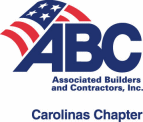In order for an agreement to constitute a valid contract that courts or arbitrators will enforce, both parties to the agreement must mutually assent to all of the terms of the deal. The fancy Latin term for this mutuality requirement is “aggregatio mentium;” we Americans call it a “meeting of the minds.” And as between general contractors and subcontractors in the construction industry, the signatures of the parties typically signify their mutual intent to be bound.
But what if the subcontract isn’t signed, and the parties proceed with performance of the underlying scope anyway?
That’s the conundrum the North Carolina Court of Appeals (“COA”) confronted in its April 19, 2016 decision in Southeast Caissons, LLC v. Choate Construction Company.
The general contractor and caisson subcontractor in that case went back and forth repeatedly on various drafts of a written subcontract. The sub’s scope was commenced — and completed about three months later — without a final deal being reached on all terms.
When the subcontractor wasn’t paid, it sued for breach of contract (among other claims) in the Forsyth County Superior Court. The unsigned subcontract called for dispute resolution in Wake County, prompting the general contractor to move for dismissal of the sub’s suit or, in the alternative, a change in venue. The trial court determined that the subcontractor was not bound by the unsigned subcontract, and that venue was proper in Forsyth County. The GC appealed.
In affirming the trial court’s Order, the COA relied on the rule that the absence of a signed, written instrument is evidence of the parties’ intentions not to be bound by the proposed contract. On the rights set of facts, that evidence could be outweighed by other evidence demonstrating that both parties accepted and acted upon the unsigned terms. That wasn’t the case in Southeast Caissons, however — to the contrary, the COA concluded that virtually all of the evidence suggested that the parties never achieved a “meeting of the minds” on all of the subcontract’s terms.
Does that mean no deal existed between the GC and the sub? Not necessarily. The COA remanded the case back to the trial court for a determination of whether a contract “implied-in-fact” existed between the parties by virtue of their actions. Even in the absence of a contract implied-in-fact, the subcontractor might still prevail on its payment claim under an equitable quantum meruit (i.e., unjust enrichment) claim for relief.
The takeaway? Southeast Caissons makes it clear that general contractors seeking to utilize their standard subcontract forms should insist upon a signed agreement before permitting work to begin. Allowing your subcontractor to proceed with its scope without first obtaining its “John Hancock” risks losing the benefits of those favorable subcontract terms your construction attorney spent so long drafting for you.











